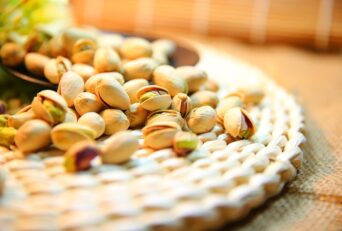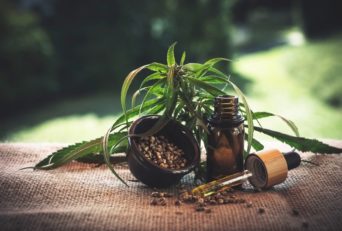I’m going to introduce you to Java Tea which is one of the best herbal teas. For all the tea lovers, this one is a must-have.
Java tea is the healthiest beverage on the earth. It is loaded with antioxidants and nutrients that have powerful effects on the body.
Do you drink java tea?
If you are trying to improve your lifestyle or shed some kilos then, this amazing drink called ‘java tea’ needs all your attention.
Java tea has been consumed for thousand years. It has also proven to have delicious medicinal benefits like managing weight, fighting various diseases, boosting energy reducing and stress.
Studies too have shown that the components found in Java tea can work wonders for your health. The small little tea bag carries numerous health benefits.
So, drink up, because your overall health is about to get a lot better!
I’m going to provide you with some of Java tea’s great benefits that you might not be familiar with.
Mark my words – Java tea is more than just liquid. It is the elixir of life. Read on and at the end of this article, you’ll agree with me.
Say HI to Java Tea!
Java Tea is a herb that is widely grown in tropical areas. It is also called as Orthosiphon are status. Java Tea is a medicinal plant. The plant can be identified by its white or purple colored flowers. It is also commonly referred as “Misai Kucing”. The herb is usually known as Java tea and is widely used as an herbal tea in parts of Asia.
While this plant is native to South East Asia and Australia, its medicinal values are not much known in other parts of the world.
Table of Contents
Health Benefits Of Java Tea
A herb that has so many medicinal virtues? Let me provide you with some proof and science baked benefits of Java tea.
Read for yourself!
1. Irrigation Therapy
Java tea is often taken as irrigation therapy. In this therapy Java tea is taken along with lots of fluids to increase urine flow.
Java tea is known increase the loss of body water through the urine, stop spasms, and help fight bacteria.
2. Beneficial In Treatment Of Kidney Disorders
It is useful in the treatment of bladder and kidney disorders such as infections caused by bacteria and kidney stones.It is used to treat problems of the liver and gallbladder including gallstones and gout.
Java tea is also very beneficial in the treatment of rheumatism, renal and urinary infections.Experiments have shown that Java tea has a mild diuretic effect and is known to increase the excretion of urea and uric acid.
It’s popular mainly because of its diuretic effects without harming the kidneys. It contains sufficient potassium to replace the lost potassium from the body in the diuretic process.
A study found that a daily dose of Java tea was as effective as conventional drugs and had no side effects. It increased the excretion of calcium and uric acid.
3. Inhibits The Proliferation Of Cancer Cells
Another study showed that certain compounds extracted from Java Tea leaves prevented the proliferation of cancer cells. Java tea’s diuretic and bile stimulating effects mean that it is often used to complement slimming diets.
4. Has Antiallergenic, Antihypertensive, Anti-Inflammatory And Diuretic Properties
Java Tea is known to have antiallergenic, antihypertensive, anti-inflammatory and diuretic properties.
5. Possess Antifungal Properties
Java tea also has antifungal properties, and it shows considerable antibacterial activity.
6. Cures Joint Aches
Java Tea is used for the treatment of joint aches and pains due to arthritis, gout, and rheumatism. This is because of its ability to promote the excretion of uric acid and metabolic wastes.
To cure joint aches, you should avoid high protein diets as they add up to the build-up of these wastes. One should also avoid factors like stress, lack of exercise, etc.
7. Used For Treatment Of Diabetes And Hypertension
Traditional bomohs and sunsets often use Java Tea in the formulas for the treatment of diabetes and hypertension.
8. Treats Blood Pressure
According to scientific research, it was found that some of the herb’s compounds promoted a continuous decrease in blood pressure, a decrease in cardiac output and diuretic action.
9. Have Java Tea For Fast Weight Loss
The capsules capture the concentrated goodness of Java tea in a form that is easy and simple to take. It helps a lot in losing weight in just a few weeks.
Drinking java tea also makes you feel less bloated, and you feel a lot healthier. Java tea is widely valued as an aid to weight loss. It speeds up the body’s metabolism and helps prevent absorption of fat.
10. Healthy Teeth
Since Java tea is anti-bacterial and is known to kill bacteria. Intake of java tea improves your dental health and prevents you from catching infections.
11. Other Benefits
Other benefits of Java Tea are mentioned below.
- Has Antioxidants
- Protects cells from the damaging effects of free radicals;
- Provides a source of vitamin A,
In addition to the above-mentioned properties, Java Tea also has other capabilities that require further research and clinical trials:
- Slowed tumor development both in early and late stages of growth with no apparent side effects
- Involved in the treatment of growth & tissue repair.
- Anti-HIV and anti-malarial
- Anti-stress
- Anti-ulcer
- Anti-acne
- Java Tea is known to decrease your risk of dying and help you live longer.
- Java tea kills bacteria which improves your dental health and prevents you from catching infections.
- Protects your brain in old age, lowers your risk of diseases like Alzheimer’s and Parkinson’s disease.
- Contains various bioactive compounds that can improve health.
- Java tea is also known to improve skin and protect pores.
- Another traditional use of Java Tea is in the treatment of diabetes.
Java Tea Is More Than Just a Plant
In the west, Java tea was introduced during the early 20th century. The brewing process of Java tea is quite simple.It is first soaked for three minutes in hot boiling water.
After soaking it in boiling water, honey or milk is added.It can be easily prepared as garden tea from the dried leaves. Some commercial products are derived from Java Tea. Its leaves and stem tips are used to make medicine.
Java tea’s said purposes tend to revolve around treating inflammatory disorders or treating ailments of the urogenital tract. This herb also works as a fat burner.
This attractive herbaceous shrub from Southeast Asia can grow to a height of almost 1m. It has irregular, indented leaves, which grow in pairs opposite one another.
A distinctive feature of the plant is the white or lilac flowers with wispy stamens that extend 2cm beyond the petals. They are known as cats’ whiskers.
What Are Other Common Names For Java Tea?
Common Names For This Plant Are
- Misai Kuching – Malaysia,
- Java Tea and Kidney Tea – Europe
- Kumis Kucing and Rim Jung – Indonesia
- Yaa Nuat Maeo – Thailand
Scientific Names Of Java Tea Are
- Orthosiphon Stamineus Benth,
- Ocimum Aristatum BI.,
- Orthosiphon Aristatus (Blume).
Plant Family To Which Java Tea Belongs
- Lamiaceae, Labiatae
Nutritional Profile
- Leaves and flowers are the parts that are used mostly.
- The leaves and the flowers are harvested at the beginning of the flowering period,
- They are then dried and divided into fragments.
- The Java plant is used to make infusions, powder capsules, and extracts.
Constituents
The most important compounds found in Java tea are as follows:
- polyphenols
- sinensetin
- Very small quantities of essential oil have been detected in Java tea.
- Java tea also contains a large amount of potassium.
What Are The Products Based On Java Tea Available In The Market?
Where Can I Buy Raw Herbs Of This Plant?
Java tea can be found in many products in the market. In these products, a safe diuretic action is required such as
- Detoxification
- Water retention
- Hypertension
- Weight loss
- For kidney stones
The products can be found in the form of dried leaves, tablets, capsules, tea bags, drinks, extracts or raw herbs.
Side Effects Of Java Tea
When used in therapeutic doses, no adverse side effects of Java Tea have been reported.
It is not recommended for pregnant or breastfeeding women.
Do not take Java tea if you’re suffering from the following problems/conditions:
- If you are pregnant or breastfeeding.
One should stay on the safe side and avoid the use of the herb. Not much is known about its use during pregnancy.
- If you are swollen and suffering from edema due to decreased kidney or heart function.
Fluid retention (edema): You should not use Java tea as irrigation therapy when you are suffering from fluid retention. Java tea might have an effect like a water pill or “diuretic.” Taking Java tea during the problem of edema could cause a problem and result in serious side effects.
- You should talk with your doctor before using this product if you are consuming lithium. Your dose of lithium may be changed.
Preparation And Dosage
For Internal Use
Before you start to use it, Please discuss the usage and other effects of this herb with your doctor.
To treat problems like bile disorders, kidney stones, and gallbladder stones:
Infusion
- Put 5g into 1 liter of boiling water.
- Leave to infuse for 5 minutes.
- Drink 1-3 cups a day,
Consume the last dose at least 2-3 hours before sleeping.
Capsules
- You should take two capsules with a large glass of water three times a day before eating.
Java tea can be prepared with the following recipe:
- Wash fresh or dried java tea leaves
- Chop the leaves and then add 4 cups of water for every 1 cup
- Let it boil for around 10 to 15 minutes
- Let it steep then strain
Java tea should be stored in a suitable glass container for later consumption.
Dosage considerations of Java Tea.
The recommended dosage of dried herb: 300-500mg daily
- Java Tea should not be taken with other medicines intended to acidify urine as it may neutralize this effect.
- Also please note that treatment of kidney disease and kidney stones should only be done by professionals.
Bottom Line
If you want to feel better, lose weight and stay away from chronic or life-threatening diseases then consider making java tea a regular part of your life.
Also Read
How Drinking Ayurvedic Tea Can make You Live Longer
Why Should You Drink Holy Basil (Tulsi) Tea?
12 Best Benefits Of Green Tea That You Don’t Know






